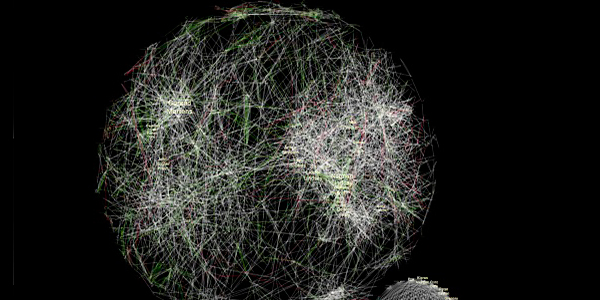Digital Humanities: Where does Art fit in?

Professor Deb Verhoeven (HuNI), Dr Gillian Fuller (DAAO) and Emily Wubben (DAAO)
Presented with Design & Art Australia Online (DAAO) and Humanities Networked Infrastructure (HuNI)
Friday 5 June, 2015
5.00pm - 6.00pm
William Macmahon Ball Theatre, Room 107, Old Arts (Building 149)
The University of Melbourne
In recent years there has been much talk about e-research and Digital Humanities. The use of opaque terms, such as metadata, virtual laboratories and data mapping have become common in use.
How may this language that seems so far removed from established research practices be applied to the Humanities.
In this talk Verhoeven and Fuller will discuss how data-driven research is being used in the creative arts, and showcase two leading digital humanities projects in the area: DAAO and HuNI. They will also address the following pressing issues for Digital Humanities:
- Representation: ensuring Australia's cultural heritage is preserved and visible
- Methods of Analysis; what can you do with cultural data? What kind of research does it afford? And what critical discussions need to be had about data driven methods?
- Participation and engagement: What do we really mean by this?
Professor Deb Verhoeven
Deb Verhoeven is Professor and Chair of Media and Communication at Deakin University, She is also Director of the Humanities Networked Infrastructure (HuNI) project, a national linked data initiative that unites and unlocks Australia's cultural datasets.
View Professor Verhoeven's profile
Dr Gillian Fuller
Gillian Fuller is Visiting Research Scholar at National Institute of Experimental Arts, UNSW and former Research Director of Design & Art Australia Online.
View Dr Fuller's profile
Emily Wubben
Emily Wubben is a Digital Content Officer at DAAO, having previously served as DAAO's Melbourne Project Officer in 2012. She is also an Exhibitions Research Officer for Melbourne's Shrine of Remembrance. She holds a Master of Art Curatorship and a Bachelor of Arts (Honours) from the University of Melbourne. Emily is a co-author of Architectural ornament: The history and art of Wilson Hall at the University of Melbourne, published by the University's Cultural Collections (2012), and a contributor to the National Gallery of Victoria's recent exhibition catalogue Medieval moderns: the Pre-Raphaelite Brotherhood (2015).
HuNI
Humanities Networked Infrastructure is a national Virtual Laboratory project developed as part of the Australian government's NeCTAR (National e-Research Collaboration Tools and Resources) program. HuNI combines information from 30 of Australia's most significant cultural datasets covering more than 2 million authoritative records relating to the people, organisations, objects and events that make up Australia's rich cultural heritage. HuNI also enables researchers to work with and share this large-scale aggregation of cultural information. Visit the HuNI website.
DAAO
Design & Art Australia Online (DAAO) is a collaborative e-Research tool built upon the foundations of the Dictionary of Australian Artists Online. DAAO is an open source freely accessible scholarly e-Research tool that presents biographical data about Australian artists, designers, craftspeople and curators. Visit the DAAO website.